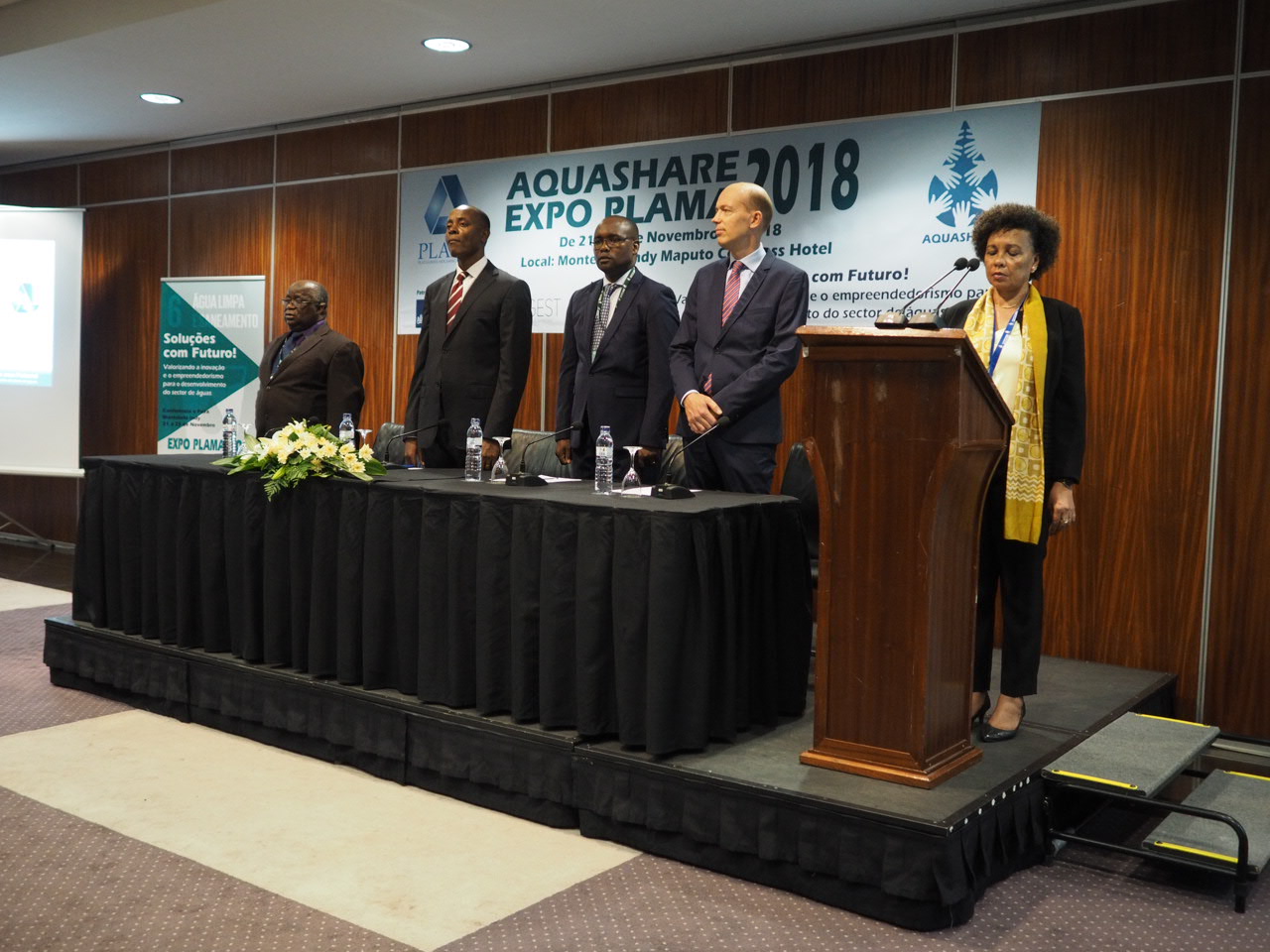by André
Times flies and we just had a new edition of Aquashare Expoplama conference. This time around there was a great focus on innovation and entrepreneurship, two topics that are very important for us, so read along my highlights of the event.
The program
We had three very busy days that included short pitches from companies attending the conference, academic work being developed in Mozambique and some context offered by members of government organizations – it was a very diverse program.
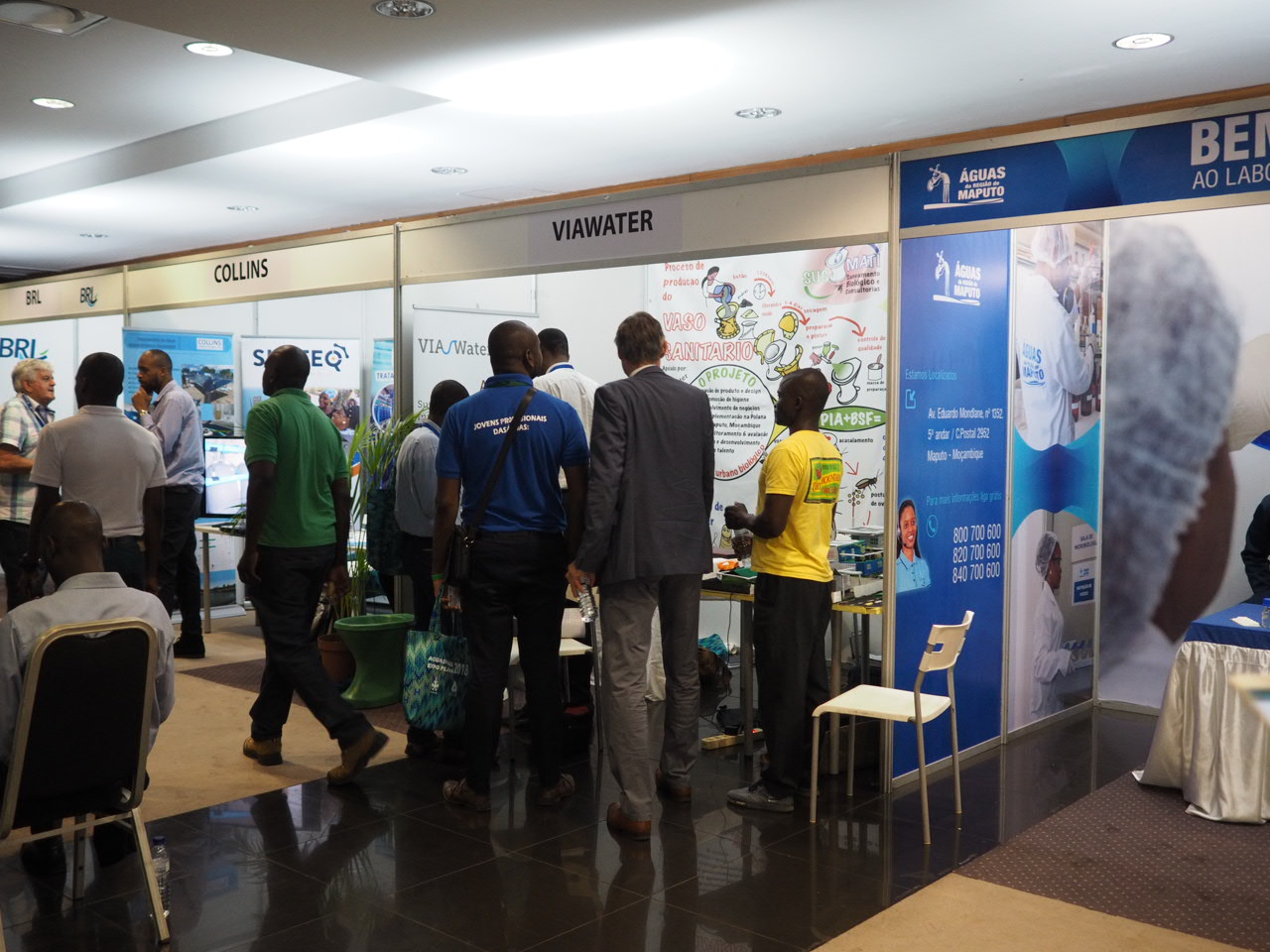
One of the exhibitors – our colleagues from VIA Water.
On the first day we had the participation of the Ministry of Public Works, Housing and Water Resources, Mr. João Osvaldo Machatine, who opened the ceremony. We also had the participation of a representative of the Dutch Embassy in Maputo. This was followed by a presentation given by Manuel Alvarinho who told us about “Building the Water Industry of our Future”.
Alvarinho’s presentation was then followed by a keynote presentation given by Luuk Rietveld entitled “Clean Water and Sanitation, SDG6 and vision of innovation and research”. Luuk’s presentation (you can download it here) framed the concept of water reclamation and water recycling within Sustainable Development Goal number 6 (my highlights in bold):
6.1 – By 2030, achieve universal and equitable access to safe and affordable drinking water for all
6.2 – By 2030, achieve access to adequate and equitable sanitation and hygiene for all (…);
6.3 – By 2030, improve water quality by reducing pollution, (…) and substantially increasing recycling and safe reuse globally;
6.4 – By 2030, substantially increase water-use efficiency across all sectors (…);
6.5 – By 2030, implement integrated water resources management at all levels (…);
6.6 – By 2020, protect and restore water-related ecosystems, (…);
6.a – By 2030, expand international cooperation and capacity-building support to developing countries in (…) wastewater treatment, recycling and reuse technologies;
6.b – Support and strengthen the participation of local communities (…)
Luuk’s presentation resonated quite well with the government representatives and it started a series of meetings and discussions regarding a possible support of TU Delft to the Mozambican water and sanitation sector. Let’s see in the coming months where this takes us.
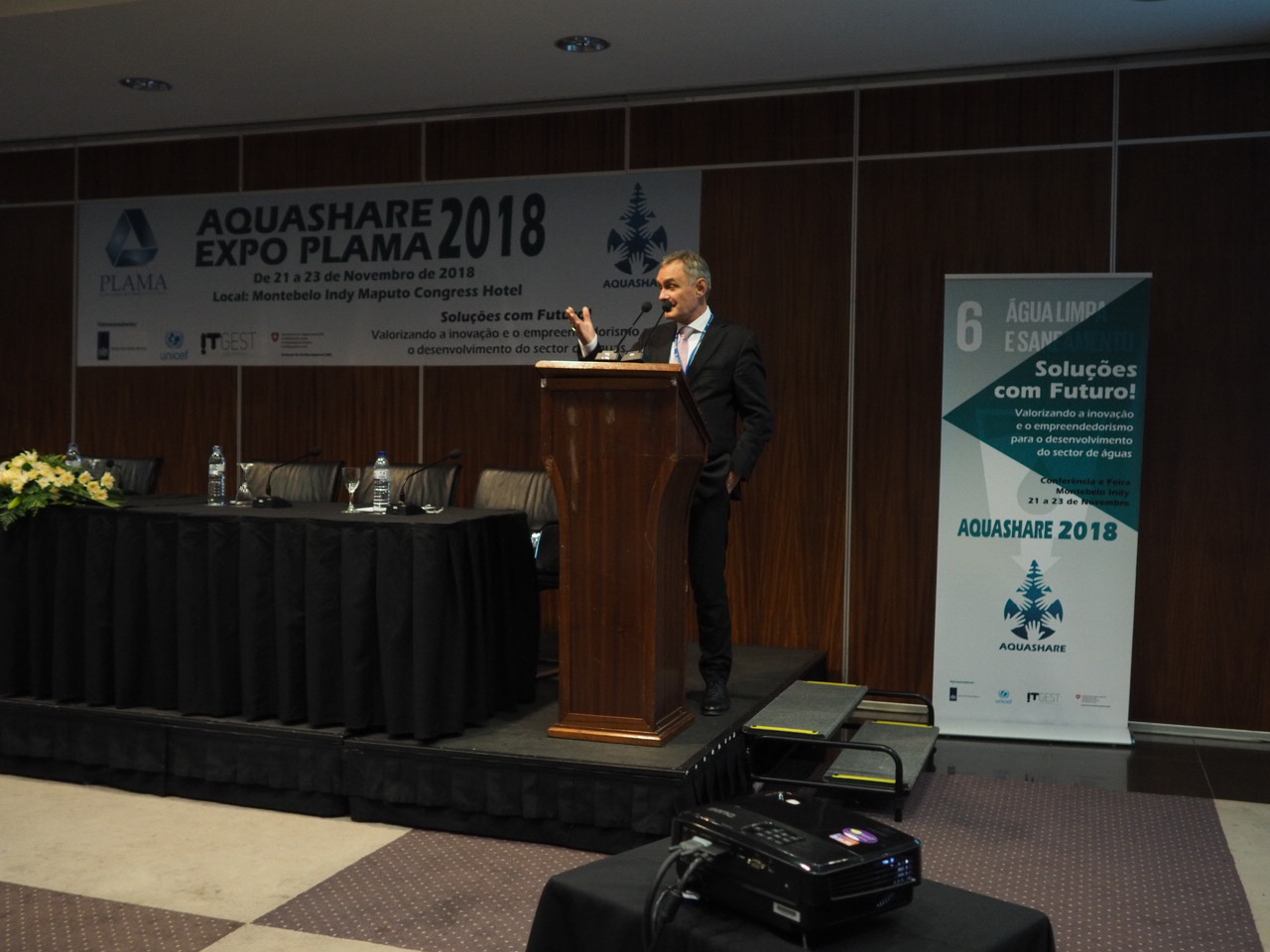
Luuk giving his keynote speech.
Our participation
In the following days both me and Celma gave a presentation. I focused on the water balance to the city of Maputo, and I linked it to planned sanitation infrastructure – in particular the Masterplan – for the city of Maputo. My argument is that given the projected water deficit – even assuming the construction of Moamba and Corumana dams – the sector could start looking at water reclamation as a potential water sources for the coming decades, in particular for industrial use. A particular example, for the city of Matola, could be the relocation of the wastewater treatment plant to serve the industrial complex around Mozal somewhere in the future (see slide below). 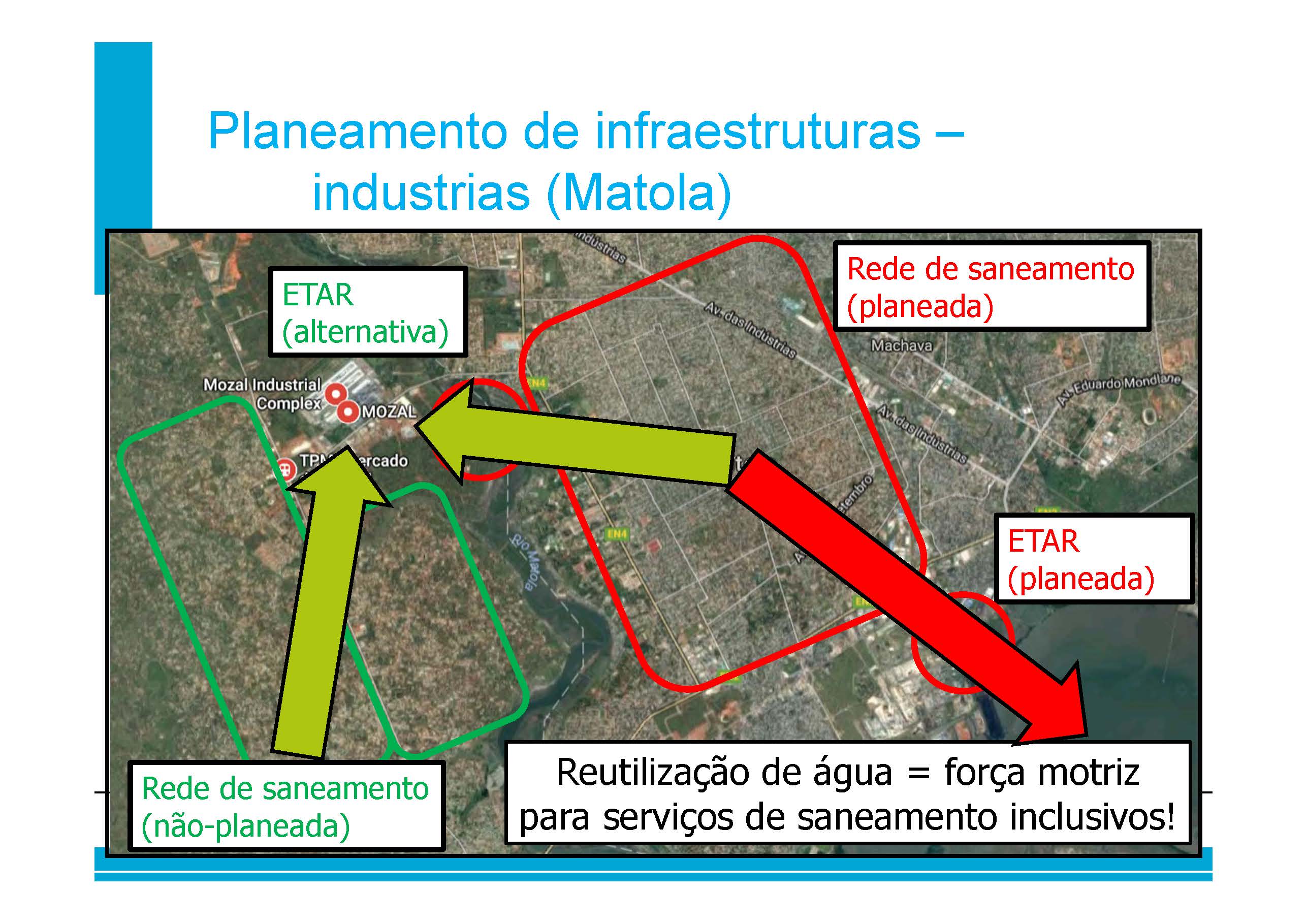
Hypothetical alternative to the planned sanitation works for the city of Matola.
Celma presented her conclusions from her literature review. Celma discussed in detail lessons learned from water reclamation projects for irrigation across the world, and their applicability in the context of Maputo and Mozambique. Celmaalso presented the need to consider multiple barriers – control steps along the supply chain, from the farm to the consumer – in order to reduce the risk of contamination from the use of (treated) wastewater in irrigation. This possibility would be one of the alternatives to remedy the risk exists and may be applicable to most of the developing countries, for example Mozambique.
Our presentations can be downloaded here.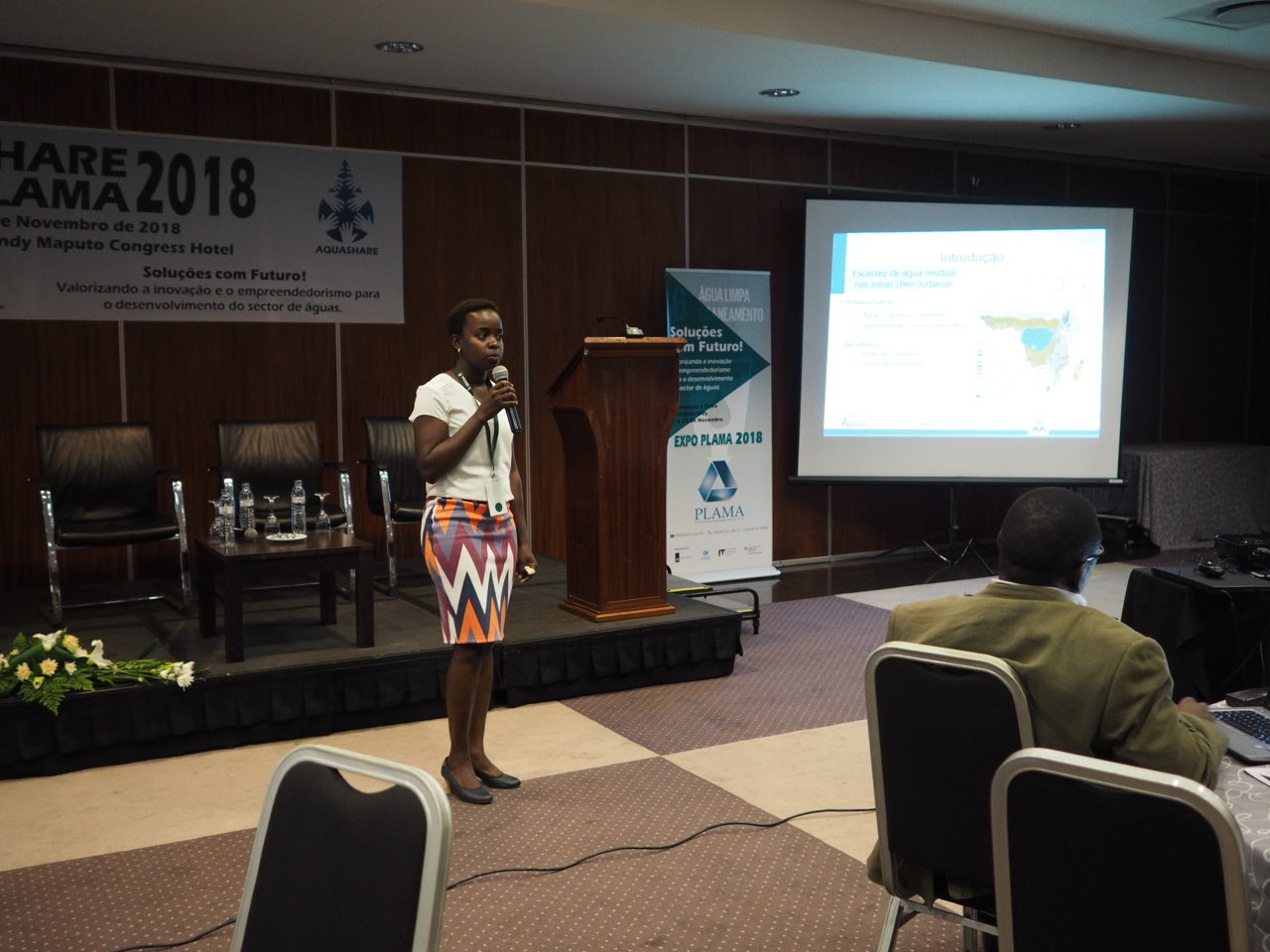
Celma giving her presentation.
Concluding remarks
Aquashare Expoplama 2018 was a great opportunity for us to showcase our work and to further demonstrate the relevance of water reclamation for the city of Maputo. Our three presentations covered a wide spectrum with Luuk focusing on a meta-level and introducing the concept of water reclamation and urban water cycle, me then presenting clear examples for implementation of these concepts; and finally Celma looking into which combination of approaches could be implemented to allow safe irrigation with treated wastewater in Maputo.
I am very happy with our performance and I do believe that our presentations did not go unnoticed: it is clear that TU Delft and UEM are at the forefront of research in water and sanitation in Mozambique and that was clear during the conference.
Finally, it remains to be seen in which shape and form our further support to the Mozambican water and sanitation sector will take but I that’s something that we will only fund out in the coming months. So stay tuned!

